Embracing Minimalism in Your Expat Journey: Tips for Downsizing When Moving to Europe
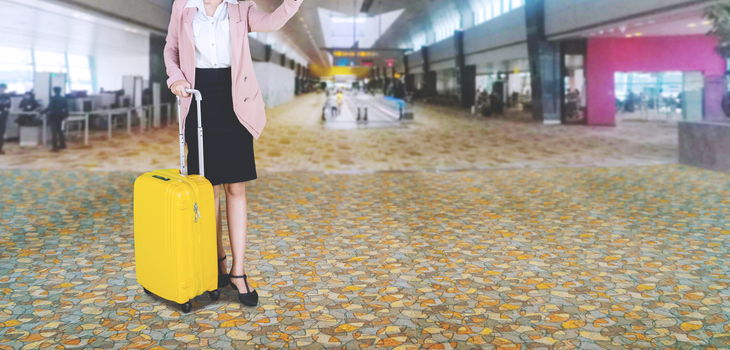
The trend of minimalism is on the rise among expats, especially when it comes to moving abroad. This movement is centered around the idea of “minimalist living when moving abroad”. Expats, those who live outside their home country, are increasingly drawn to minimalism as they relocate. Minimalist living involves decluttering and simplifying possessions to prioritize experiences over material things. Moving abroad often means starting fresh, and decluttering helps with that. Minimalism provides mental clarity and a readiness for new experiences.
Downsizing and decluttering before relocating to Europe holds significant importance. This process isn't just about simplifying your belongings; it's a strategic step that can greatly enhance your overall expat experience.
Moving to a new continent entails a variety of challenges and adjustments. By downsizing and decluttering, you're effectively minimizing the logistical hurdles that come with transporting unnecessary items across borders. This translates to reduced shipping costs, less packing stress, and a quicker settling-in process.
Understanding the European Lifestyle and Space Constraints

When preparing for a move to Europe, it's crucial to grasp two fundamental aspects: the challenges of smaller living spaces and the cultural dimensions of minimalism across European countries.
Exploring the Impact of Smaller Living Spaces in Europe
- Efficiency: European homes are designed for efficiency, utilizing every inch of space.
- Creative Storage: Limited space encourages innovative storage solutions.
- Intimacy: Compact living areas create a cozy and close-knit environment.
- Simplified Living: The need for decluttering before moving is inherent in smaller spaces.
Cultural Aspects of Minimalism in European Countries
- Quality Over Quantity: European cultures often value quality possessions over excessive accumulation
- Environmental Awareness: Minimalism aligns with the sustainability ethos embraced by many European countries.
- Experience-Centric: European minimalism emphasizes experiences and relationships.
- Historical Roots: The appreciation for minimalistic aesthetics and functional design has historical significance.
Benefits of Adopting Minimalism in Expat Life
Embracing minimalism as an expatriate offers a range of advantages that contribute to a more balanced and fulfilling life. This section delves into the key benefits of adopting a minimalist lifestyle while navigating life as an expat.
Reduced Stress and Enhanced Well-Being
- Clarity and Focus: Minimalism encourages you to prioritize what truly matters, reducing mental clutter.
- Simplicity: Having fewer possessions simplifies decision-making and reduces overwhelm.
- Emotional Well-Being: A clutter-free environment fosters calmness and tranquility.
Financial Advantages and Cost Savings
- Smart Spending: Minimalism encourages mindful consumption, preventing impulse purchases.
- Lower Expenses: Owning fewer possessions means less maintenance, repair, and replacement costs.
- Budget Allocation: You can allocate resources to experiences and meaningful activities rather than things.
Environmental Sustainability and Reduced Carbon Footprint
- Conscious Consumption: Minimalism promotes intentional purchasing, reducing waste.
- Resource Conservation: Owning fewer items leads to less consumption of natural resources.
- Eco-Friendly Mindset: Minimalism aligns with environmentally conscious living, reducing your carbon footprint.
Assessing Your Belongings: What to Keep and What to Let Go
Checklist for Evaluating Possessions
- Essentials: Identify items you genuinely need for your daily life.
- Multi-Functionality: Prioritize items that serve multiple purposes.
- Frequency of Use: Consider how often you use each possession.
- Size and Space: Assess if items fit within your new living space.
- Practicality: Determine if items are practical for your new environment.
- Replicability: Evaluate if items can be easily replaced at your destination.
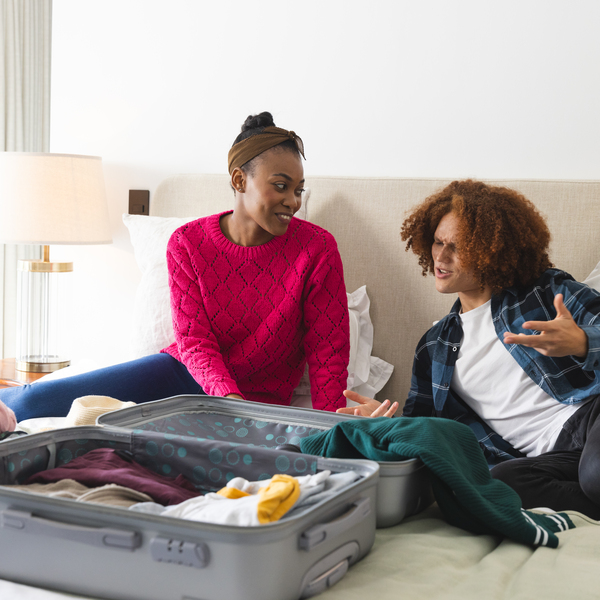
Sentimental Items vs. Practical Necessities
- Sentimental Value: Consider emotional attachments to items.
- Curated Keepsakes: Select a limited number of sentimental items.
- Digitization: Scan photos or documents to preserve sentimental value.
- Practicality: Focus on items that enhance daily living.
- Versatility: Prioritize possessions that adapt well to different scenarios.
Assessing your belongings requires a balanced approach between sentimentality and practicality. Creating a checklist helps you make systematic decisions, ensuring that your choices align with your new expat lifestyle. By carefully evaluating each possession's utility and sentimental value, you can curate a collection that enriches your new chapter while minimizing unnecessary burdens during your international move.
Efficient Packing Techniques for a Minimalist Expat Move
When preparing for an expat move, efficient packing techniques play a crucial role in ensuring a seamless transition. This section provides valuable insights into space-saving methods while incorporating tips for decluttering before moving.
Utilizing Space-Saving Packing Methods
- Rolling Clothes: Roll clothing items to maximize space and minimize wrinkles.
- Vacuum-Sealed Bags: Use vacuum-sealed bags to compress clothing and bedding.
- Nested Packing: Place smaller items inside larger ones to optimize space.
- Cushioning Materials: Utilize soft items like socks or towels as padding.
- Disassembling Furniture: Take apart furniture to save space and prevent damage.
Tips for Organizing and Labeling Boxes
- Room-Based Packing: Pack items from the same room together to simplify unpacking.
- Label Clearly: Label boxes with their contents and destination room.
- Priority Labeling: Mark boxes containing essentials for immediate use.
- Fragile Items: Clearly indicate boxes with fragile contents.
- Inventory List: Maintain a list of box contents for easy reference.
Efficient packing is an essential aspect of a minimalist ex-pat move. By incorporating space-saving techniques and utilizing tips for decluttering before moving, you can streamline the packing process and ensure a successful transition to your new home. These methods not only save time and space but also align with the principles of intentional living that minimalism promotes.
Selling, Donating, and Recycling Unwanted Items
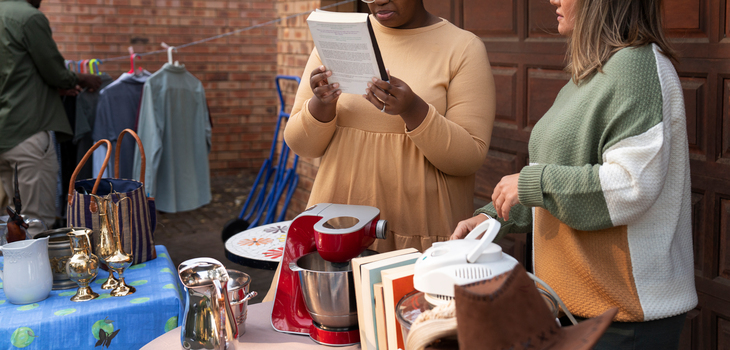
Strategies for Selling Valuable Items
- Online Platforms: Utilize platforms like eBay, Craigslist, or Facebook Marketplace to reach a wide audience.
- Garage Sales: Organize a garage sale to sell multiple items at once.
- Consignment Stores: Consider consignment stores for valuable clothing, accessories, and furniture.
- Antique Dealers: Consult antique dealers for valuable or unique items.
- Auctions: For rare or high-value items, auctions can yield competitive prices.
Identifying Suitable Donation Centers and Charities
- Local Charities: Research local charities that accept donations and align with your values.
- Community Centers: Schools, shelters, and community centers often welcome donated items.
- Thrift Stores: Donate to thrift stores supporting charitable causes.
- Refugee Organizations: Support refugees by donating essentials like clothing and household items.
Environmentally Responsible Ways to Recycle
- E-Waste Recycling: Dispose of electronic items responsibly at certified recycling centers.
- Clothing Recycling: Many organizations collect used clothing for recycling or repurposing.
- Household Recycling Centers: Utilize local recycling facilities for paper, plastic, glass, and metal items.
- Furniture Restoration: Consider repurposing or refurbishing old furniture items.
Renting Storage Spaces: Pros and Cons
Amid the process of organizing and decluttering before moving, the idea of renting storage spaces typically emerges as a potential solution. This section delves into the advantages and potential drawbacks of utilizing storage units during this transitional phase.
- When and Why to Consider Renting Storage Units
- Temporary Transition: Storage can be useful during the transition between homes.
- Seasonal Items: Store seasonal belongings like winter clothes or holiday decorations.
- Sentimental Items: Safeguard sentimental items that you're not ready to part with.
- Flexibility: Storage provides flexibility when downsizing temporarily.
Potential Drawbacks of Relying on Storage
- Cost: Storage units incur ongoing expenses that may add up over time.
- Excess Items: It can lead to holding onto items that you may not need in the long run.
- Out of Sight, Out of Mind: Items in storage might be forgotten or neglected.
- Logistical Hassle: Accessing stored items can be inconvenient, especially if the unit is far.
Before renting storage, assess your needs and consider alternatives like selling, donating, or repurposing items. Evaluate the importance of the items you plan to store and the potential long-term costs. Remember, while storage can offer short-term solutions, prioritizing decluttering and intentional possession management remains key to a minimalist and organized expat life.
Streamlining Your Wardrobe: Capsule Wardrobe Essentials
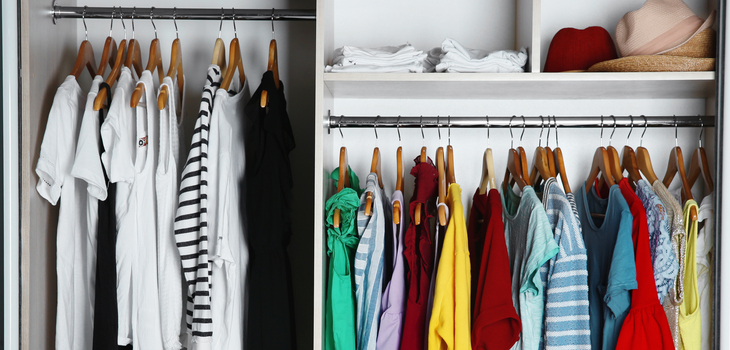
As you embark on your expat journey, decluttering tips before moving extend to your wardrobe. This section delves into the concept of a capsule wardrobe, offering insights on how to create a versatile collection of essentials that align with your minimalist lifestyle.
Building a Versatile Capsule Wardrobe
- Core Colors: Opt for a cohesive color palette that allows seamless mixing and matching.
- Essential Pieces: Include foundational items like well-fitted jeans, versatile shirts, and a classic blazer.
- Mix-and-Match Potential: Curate pieces that effortlessly combine to create various stylish outfits.
- Weather Adaptability: Choose items suitable for different climates to ensure year-round wear.
- Elevating with Accessories: Add flair and versatility with carefully selected accessories.
Maximizing Outfit Combinations with Fewer Items
- Layering Magic: Experiment with layering to generate new looks from your capsule wardrobe.
- Statement Pieces: Integrate a few statement items to infuse personality into your outfits.
- Inventive Pairings: Combine unexpected pieces to discover fresh and innovative ensembles.
- Quality Emphasis: Prioritize quality over quantity, investing in enduring pieces.
By adopting the principles of a capsule wardrobe, you not only embrace an organized approach to clothing but also align with your decluttering tips before moving. This intentional curation of versatile essentials ensures you're well-prepared for your expat journey while embodying the values of minimalism and mindful living.
Downsizing Furniture: What to Keep and What to Replace
As part of your expat journey, downsizing furniture is a key consideration for adapting to smaller living spaces. This section explores strategies for deciding what furniture to retain and what to replace, along with options for multi-functional and space-saving pieces.
Adapting Furniture Choices to Smaller Spaces
- Assessment: Evaluate your current furniture's size and suitability for your new space.
- Prioritize Essentials: Identify core pieces that enhance functionality and comfort.
- Versatility: Opt for furniture that serves multiple purposes or can be easily rearranged.
- Scale: Choose appropriately scaled items that fit seamlessly in smaller rooms.
- Multi-Functional and Space-Saving Furniture Options
- Sofa Beds: Invest in a sofa bed for guest accommodation without sacrificing space.
- Foldable Tables: Choose collapsible dining or coffee tables for adaptable layouts.
- Storage Beds: Opt for beds with built-in storage to maximize bedroom space.
- Convertible Desks: Use wall-mounted or foldable desks that free up floor space.
Maintaining Comfort and Aesthetics
- Comfort: Ensure your furniture choices prioritize comfort and ergonomics.
- Aesthetics: Select pieces that match your personal style and contribute to a cohesive look.
- Quality: Prioritize well-made furniture that stands the test of time.
Incorporating downsizing furniture into your plan for decluttering before moving is a pivotal stride toward cultivating a minimalist lifestyle in your new space. By adopting a thoughtful approach to furniture retention, replacement, and innovative solutions, you're effectively optimizing your surroundings for both functionality and aesthetic appeal. This intentional curation not only aligns with the principles of minimalism but also ushers in a more organized and harmonious expat experience.
Digitizing Memories: Going Paperless and Cloud Storage

As part of your expat preparations, digitizing memories offers a modern approach to preserving your important documents and cherished memories. This section explores the transition to digital documents and the advantages of safeguarding your memories through cloud storage solutions.
Transitioning to Digital Documents
- Document Selection: Identify documents that can be digitized, such as receipts, contracts, and personal records.
- Scanning Process: Utilize a scanner or smartphone app to convert paper documents into digital formats.
- Organized Folders: Create a system of well-organized folders to store digital documents efficiently.
- Backup Protocol: Establish a backup routine to prevent data loss.
Safeguarding Memories through Cloud Storage Solutions
- Cloud Services: Choose reputable cloud storage providers that offer secure and accessible platforms.
- Security Measures: Implement strong passwords and two-factor authentication to enhance security.
- Versatile Accessibility: Access your documents and memories from anywhere with an internet connection.
- Automatic Sync: Opt for services that offer automatic synchronization for real-time updates.
Arriving with Intention: Setting Up Your Minimalist European Home
As you embark on your expat adventure and step into your new European dwelling, the art of setting up your minimalist home with intention takes center stage. This section delves into the practice of mindful unpacking, organization, and integrating local design influences for a harmonious and purposeful living space.
Mindful Unpacking and Organizing
- Essential Prioritization: Begin unpacking by focusing on items that serve immediate needs, aligning with the spirit of decluttering your life before moving.
- Systematic Approach: Adopt a room-by-room unpacking strategy, ensuring items find their designated places with minimal chaos.
- Functional Segmentation: Organize possessions based on their functions and frequency of use, enhancing the practicality of your setup.
- Quality-Driven Display: Embrace quality over quantity, curating a display that mirrors your minimalist principles.
- Spatial Sensibility: Keep an open and uncluttered layout that reflects the mindful decluttering undertaken before your move.
Incorporating Local Design Influences
- Local Aesthetic Exploration: Immerse yourself in the design styles prevalent in your new European locale, merging global minimalism with regional influences.
- Harmonious Fusion: Blend local design elements harmoniously with your personal aesthetics, forming a unique and resonant home atmosphere.
- Artisanal Embrace: Seek out local craftsmanship and incorporate handmade treasures that enrich your decor's character.
- Adapting to Space: Choose furnishings that complement your European home's dimensions, embracing an efficient and visually pleasing layout.
- Cultural Souvenirs: Highlight cultural souvenirs as accents, encapsulating the essence of your new surroundings.
Embracing Local Experiences Over Materialism
In the midst of your expat journey and the process of setting up your new home, the profound shift from materialism to valuing experiences takes center stage. This section delves into the transformational practice of prioritizing local experiences and fostering meaningful relationships, illuminating the path towards a more fulfilling and purpose-driven life.
Shifting Focus Towards Experiences and Relationships
- Experiential Mindset: Cultivate an attitude that treasures moments and memories over material possessions.
- Emotional Wealth: Recognize the richness that relationships and shared experiences bring to life.
- Mindful Consumption: Practice thoughtful consumerism, investing in experiences that resonate with your values.
- Minimalist Living: Align with minimalist principles by redirecting focus from accumulating things to accumulating memories.

Participating in Community Activities and Cultural Events
- Community Engagement: Immerse yourself in your new local community, fostering connections and mutual support.
- Cultural Immersion: Participate in cultural events, festivals, and activities to gain a deeper understanding of your surroundings.
- Learning Opportunities: Embrace opportunities to learn from locals, broadening your horizons and enriching your experience.
- Contributing Back: Contribute to the community by volunteering or sharing your expertise.
Overcoming Challenges and Roadblocks in Minimalist Expat Life
Embarking on a minimalist expat journey is a remarkable endeavor, yet it's not without its challenges. This section delves into strategies for surmounting unexpected sentimentality and adapting to the unique nuances of the European lifestyle, ensuring a smooth and fulfilling transition.
Dealing with Unexpected Sentimentality
- Recognize Attachments: Acknowledge that sentimentality can arise unexpectedly, even within a minimalist approach.
- Selective Retention: Choose a few meaningful items that truly encapsulate the essence of your memories.
- Digital Preservation: Capture sentimental items through photographs or digitization, minimizing physical clutter.
- Letting Go Gradually: Embrace the process of releasing sentimental items at a pace that feels comfortable.
Adapting to the European Lifestyle
- Cultural Awareness: Immerse yourself in the culture of your new European home, embracing differences and nuances.
- Space Considerations: Adapt to smaller living spaces by embracing minimalist principles and efficient organization.
- Local Customs: Familiarize yourself with local customs and routines to integrate seamlessly into your community.
- Embrace Local Offerings: Discover European cuisine, events, and activities that align with your minimalist values.
Sustaining Minimalism: Tips for Long-Term Commitment
Embracing a minimalist lifestyle during your expat journey is a significant step towards intentional and purposeful living. However, the journey doesn't end once you've decluttered and organized your space. Sustaining minimalism requires ongoing dedication and mindful practices. This section provides valuable tips for maintaining your minimalist commitment in the long term.
Avoiding Re-Accumulation of Possessions
One challenge of sustaining minimalism is avoiding the re-accumulation of possessions. As you settle into your new European home, the allure of acquiring new items may arise. To counter this, cultivate a conscious consumer mindset. Before purchasing, evaluate whether an item truly aligns with your values and serves a purpose in your life. Consider the long-term impact of the purchase on your space, lifestyle, and overall well-being. By remaining selective and intentional about what you bring into your life, you can prevent the clutter from creeping back.
Periodic Decluttering and Reassessment
Regular decluttering is a cornerstone of maintaining minimalism. Set aside dedicated intervals to assess your possessions, ensuring they continue to align with your values and needs. As time passes, your priorities and preferences may evolve. Periodically reassessing your belongings allows you to identify items that no longer serve a purpose and may be better suited for donation, recycling, or gifting. This practice of letting go and curating your possessions contributes to an ongoing sense of lightness and clarity in your living space.
FAQs for Downsizing and Minimalist Expat Life

Curiosity and questions naturally arise as you embark on your minimalist expat journey. Below, we address common inquiries related to downsizing and embracing a minimalist lifestyle during your European adventure:
1. How do I decide what sentimental items to keep?
Deciding which sentimental items to keep involves a blend of introspection and practicality. Focus on items that truly hold emotional significance and evoke cherished memories. Consider whether an item aligns with your values and whether its presence enhances your life. If an item brings joy and positive feelings, it might be worth retaining. Alternatively, consider photographing sentimental items and creating a digital keepsake to minimize physical clutter.
2. What are some effective ways to sell my belongings?
Selling belongings can be both financially rewarding and environmentally responsible. Utilize online platforms such as marketplaces or auction sites to reach a wide audience. Take clear and appealing photographs of items, provide accurate descriptions, and set fair prices. You can also organize garage sales, pop-up markets, or collaborate with consignment shops. Donating to charity or giving items to friends and family are also meaningful alternatives.
3. Is minimalism suitable for families with children?
Absolutely. Minimalism can benefit families by fostering quality over quantity and promoting intentional living. Involve children in the process, explaining the value of experiences and memories over material possessions. Create designated spaces for toys and belongings, practicing organization and responsibility. Engage in family activities that emphasize connections and shared experiences, enriching your expat journey.
4. How can I adjust to the cultural differences in Europe?
Adjusting to cultural differences is a rewarding part of the expat experience. Approach with an open mind and a willingness to learn. Immerse yourself in local customs, traditions, and cuisine. Engage in community events, language classes, and workshops. Building connections with locals and fellow expats can offer insights and support. Over time, your understanding and appreciation for the European lifestyle will deepen.
5. What are the best practices for maintaining a minimalist lifestyle in the long run?
Sustaining a minimalist lifestyle requires ongoing dedication. Continuously assess your possessions, resisting the allure of re-accumulation. Prioritize experiences over material acquisitions, and cultivate a mindful consumer mindset. Regularly declutter to maintain an organized and clutter-free environment. Engage with a community that shares your values to provide inspiration, accountability, and a sense of belonging.
Additional Resources for Minimalist Expats
Embarking on a minimalist expat journey is a dynamic and enriching experience. To further support your aspirations, here are valuable resources that offer insights, inspiration, and connections to like-minded individuals:
Recommended Books on Minimalism:
- "The Life-Changing Magic of Tidying Up" by Marie Kondo.
- "Essentialism: The Disciplined Pursuit of Less" by Greg McKeown.
- "Goodbye, Things: The New Japanese Minimalism" by Fumio Sasaki.
- "Soulful Simplicity: How Living with Less Can Lead to So Much More" by Courtney Carver.
- "Digital Minimalism: Choosing a Focused Life in a Noisy World" by Cal Newport.

Websites and Blogs:
- Becoming Minimalist: A blog by Joshua Becker offering practical advice and inspiration for living a minimalist lifestyle.
- The Minimalists: Joshua Fields Millburn and Ryan Nicodemus share insights, articles, and a podcast on minimalist living.
- Zen Habits: Leo Babauta's blog explores simplicity, mindfulness, and achieving a balanced life through minimalism.
- Tiny House Blog: Explore tiny living and minimalist spaces for inspiration and innovative solutions.
- No Sidebar: A collection of essays, articles, and resources dedicated to helping you live a simpler, intentional life.
Expat Communities and Forums:
- InterNations: An expat community connecting individuals from around the world, offering events, forums, and resources.
- Expat Exchange: A comprehensive platform providing expats with information, advice, and forums to connect and share experiences.
- Expat.com: A global expat network with forums, articles, and resources to support your expat journey.
- Reddit Expat Subreddits: Platforms like r/expat and r/IWantOut offer discussions, advice, and insights from expats across the globe.
- Facebook Groups: Join expat-focused Facebook groups based on your location or interests to connect, share, and learn from fellow expats.
Personal Experiences: Stories of Successful Minimalist Expats
Real-life stories of expats who have embraced the minimalist lifestyle offer profound insights into the transformative power of intentional living. Here are a few anecdotes that highlight their challenges, achievements, and the valuable lessons they've learned along the way.
1. Maria's Journey to Freedom
Maria, a young expat, embarked on her European adventure with a desire to simplify her life. She faced the challenge of letting go of sentimental items from her past, including childhood memorabilia. Through introspection and mindfulness, Maria realized that memories reside within her heart and mind, not in physical possessions. By shedding the weight of these items, she achieved a newfound sense of freedom and clarity.
Achievement: Maria's journey allowed her to curate a minimalist living space that exudes tranquility and purpose. Her choice to prioritize experiences led her to explore her new surroundings, participate in local cultural events, and form meaningful connections.
Lesson Learned: Maria's experience taught her that the true value of possessions lies in their ability to enhance your life, not burden it. Minimalism provided her with the tools to release attachments and embrace the present moment.
2. James and Lisa: A Family's Transition
James and Lisa, a couple with two children, relocated to Europe seeking a more intentional and balanced life. Adapting to smaller living spaces challenged them to reassess their possessions. They involved their children in the process, discussing the importance of experiences over material goods. Through creative organization, the family achieved an environment where everything had a purpose.
Achievement: James and Lisa found that minimalism strengthened their family bond. They engaged in shared activities, spent quality time together, and relished the simplicity of their new lifestyle.
Lesson Learned: Their journey illuminated the significance of involving the entire family in the minimalist lifestyle. By prioritizing connections and experiences, they fostered a harmonious environment that resonated with their values.
3. Max's Evolution as an Expat
Max, an expat with a passion for photography, discovered minimalism during his European adventure. His initial challenge was parting with camera gear he rarely used. Max learned to evaluate his possessions based on their true contribution to his life. By embracing the minimalist philosophy, he transformed his approach to photography, focusing on capturing meaningful moments rather than accumulating equipment.
Achievement: Max's journey enabled him to cultivate a more profound connection to his art. He found fulfillment in the simplicity of creating impactful photographs and cherishing the experiences that inspired them.
Lesson Learned: Max's experience taught him that minimalism isn't about sacrificing passions; it's about aligning them with purpose. By reframing his perspective, he deepened his relationship with his craft and the world around him.
Conclusion: Your Minimalist Expat Journey Awaits!
As you reach the end of this guide, you stand at the threshold of an incredible adventure - an expat journey enriched by the principles of minimalism. Your decision to embrace intentional living and simplify your path is a testament to your courage, curiosity, and commitment to a life aligned with your values.
Final Words of Encouragement and Empowerment
Remember that your journey is uniquely yours, a canvas upon which you'll paint moments, connections, and experiences that resonate with your soul. Embrace challenges as opportunities for growth, knowing that your ability to navigate them with intention will shape a narrative of resilience and empowerment.
Emphasizing the Life-Enriching Potential of a Minimalist Approach
By choosing minimalism, you're not merely shedding possessions; you're shedding the excess that hinders your capacity for joy, connection, and authenticity. Your minimalist expat journey offers the potential to:
- Cultivate an environment that reflects your values and aspirations.
- Forge connections that transcend borders and language barriers.
- Create memories that linger far beyond the material.
- Experience the liberation that arises from intentional choices.
As you step into your new European home, carry with you the wisdom of decluttering, the grace of adaptability, and the lightness of mindfulness. Allow the beauty of the minimalist lifestyle to infuse each moment, creating a tapestry of experiences that radiate meaning and purpose.
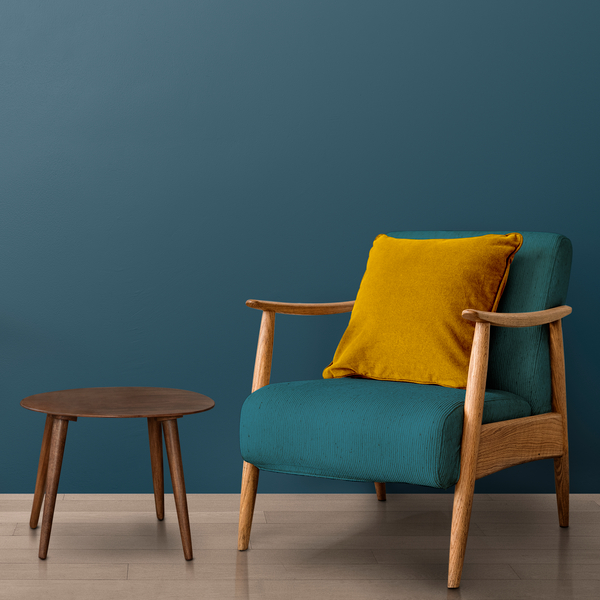
Your Journey Begins Now
Your minimalist expat journey is an invitation to explore, adapt, and thrive in a way that honors your essence. Through challenges and triumphs, connections and solitude, your intentional choices will shape a story that unfolds with authenticity, intention, and a deep appreciation for the present.
Embrace the blank pages of your new chapter, for your minimalist expat journey awaits – full of discovery, growth, and the boundless potential of a life lived with purpose and heart.

Popular Articles
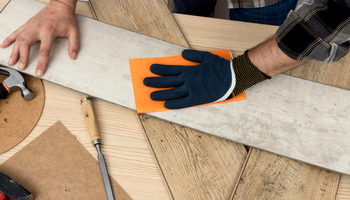
Choosing the Perfect Flooring: A Comprehensive Guide

Spotting Rental Scams before you Become a Victim
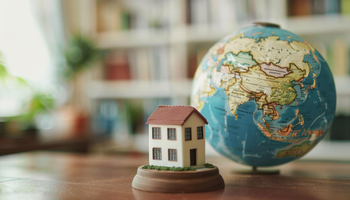
Moving Day Mastery: Smoothly Transitioning to Your New Internationa...

Berlin Vs London

Choosing Packers and Movers in Germany- A Guide for Individuals

The Benefits of Moovick’s B2B Transport Service for SMEs

